Wounded British doctor finally escapes Sudan war zone with mother - but countless NHS doctors left behind
Daughter told of utter “relief” after “nightmare four days” and calls for others to be evacuated
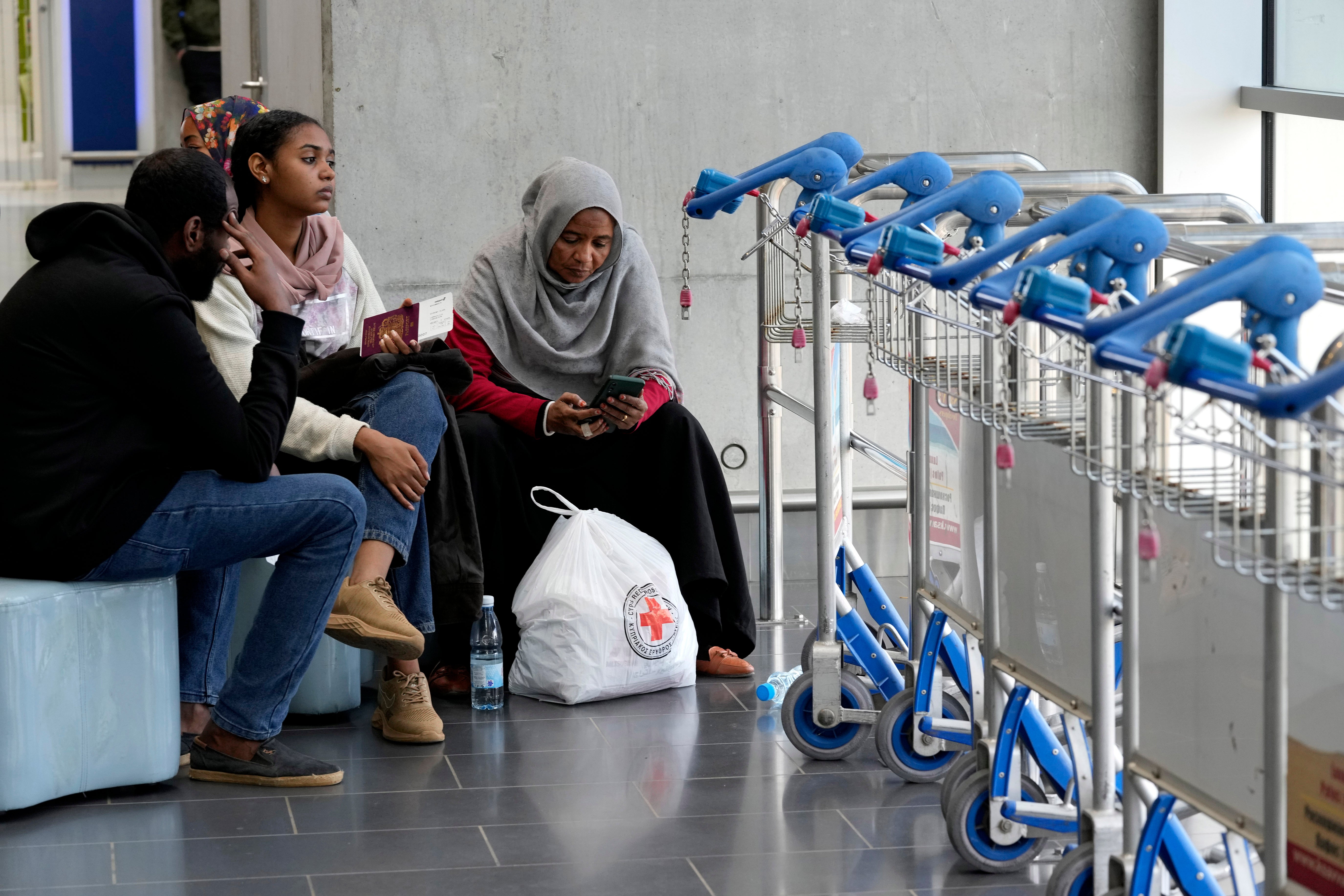
A wounded British doctor and his elderly mother have finally managed to escape Sudan on a British evacuation flight – but countless NHS doctors have been left behind.
The doctor, who recently retired after working in the NHS for more than 30 years, dodged sepsis following an operation at an airfield in Khartoum, while his 87-year-old mother was eventually granted a temporary UK visa after waiting almost 16 hours for a decision at the airbase.
His daughter – a British doctor based in London, who is calling herself Dr A in order to protect her family in Sudan – told The Independent of her utter “relief” as the pair with her sister arrived safely in Cyprus this morning after “four days of a nightmare”.
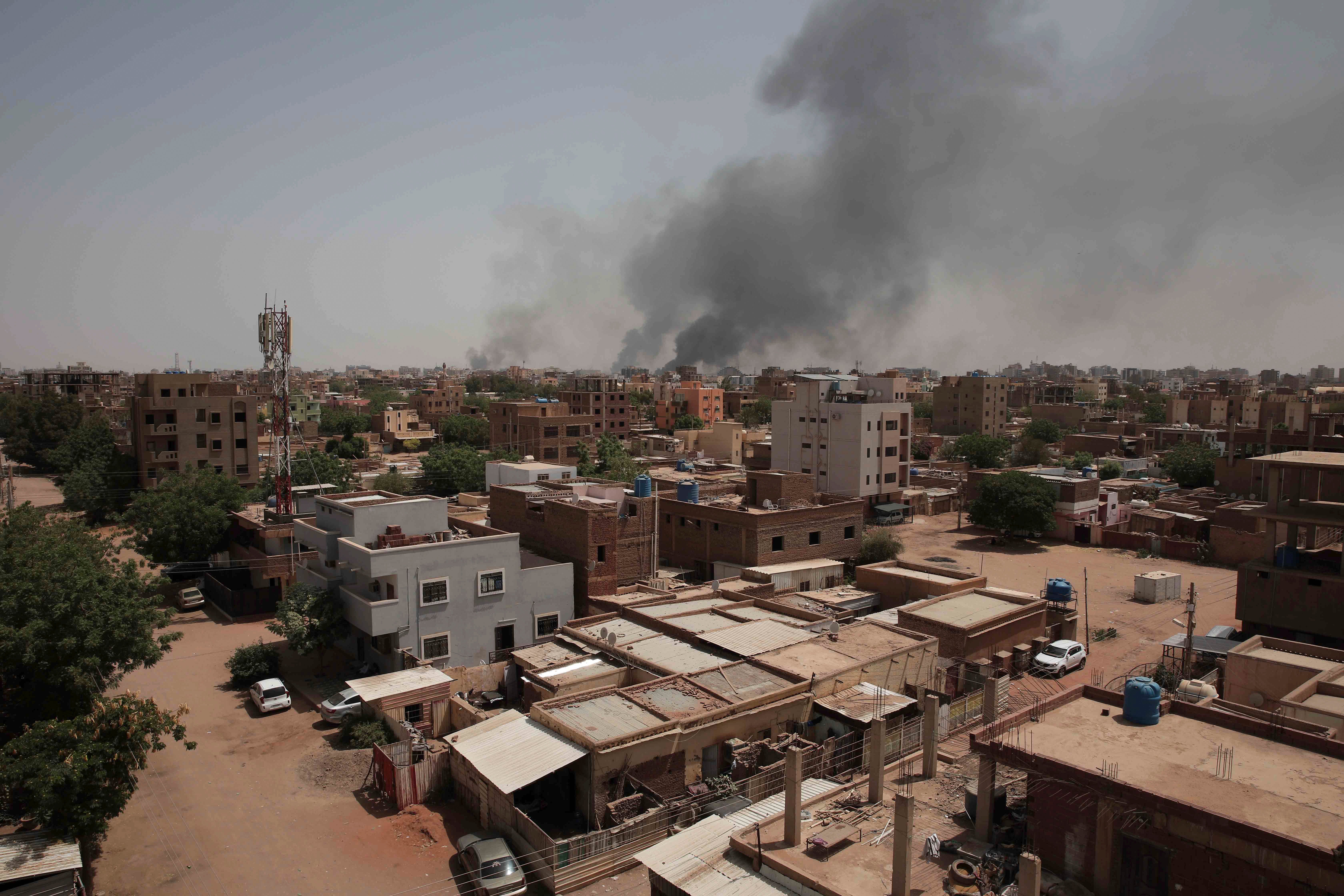
Her father was visiting his family in Khartoum for Ramadan and Eid when fierce clashes between forces loyal to the country’s two top generals erupted in the city on 15 April.
He had had to undergo surgery at the Wadi Saeedna airfield to prevent the risk of developing sepsis, after he had been shot in the leg a few days ago as he “risked his life” moving his family to a safer place. It had been too risky for them to get to a pharmacy or a hospital for him to receive adequate medical treatment.
On Thursday, the family made the perilous journey to the airbase, where evacuation flights are leaving from, and his fate hung in the balance as he underwent the procedure. If his infection had developed into the condition, not only could it have been deadly but he also would not have been able to fly home.
The family had not travelled to the evacuation point sooner as they had been waiting to find out if the retired doctor’s mother, who is Sudanese and does not have permission to come to the UK, had had her application for a temporary visa accepted.
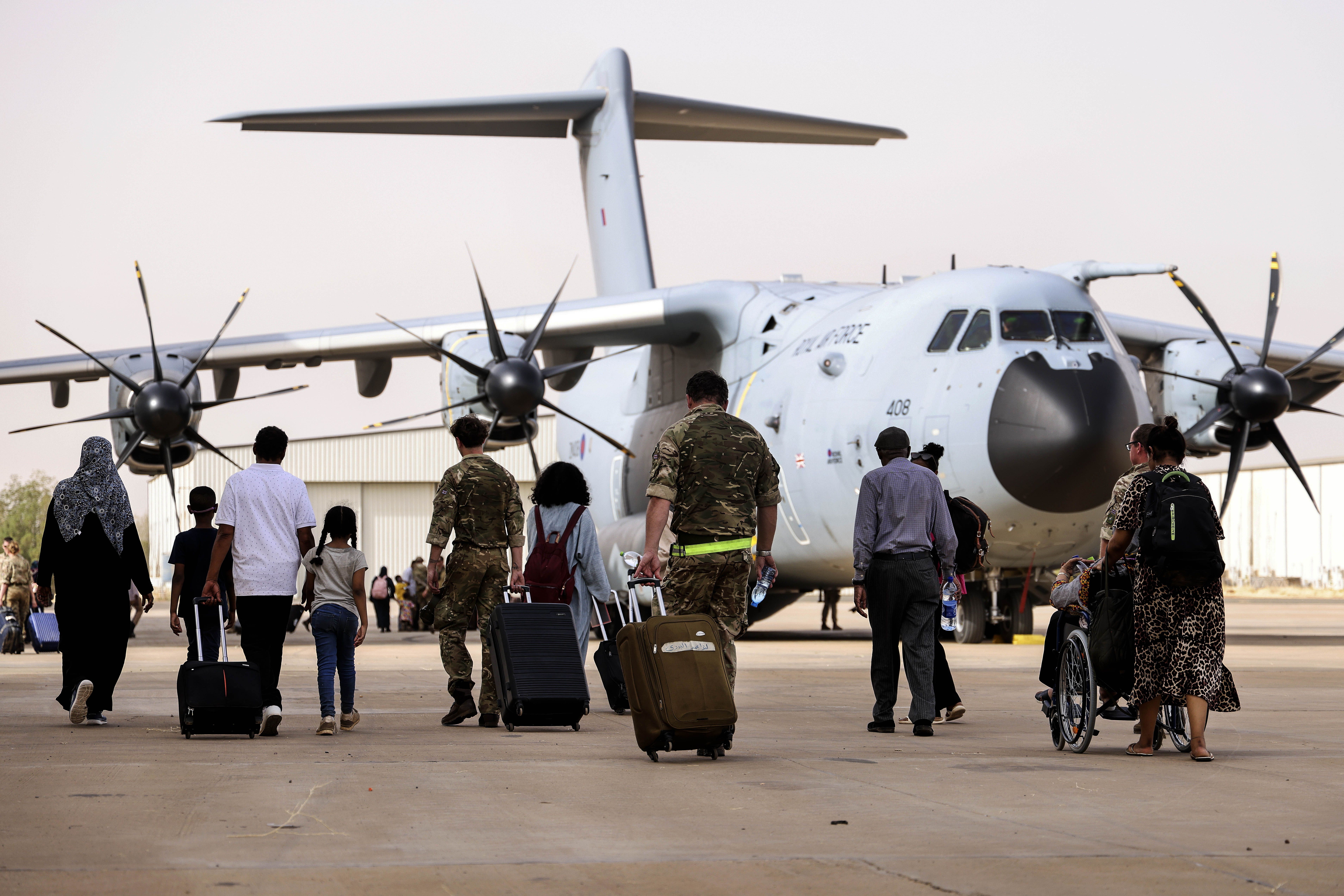
They ended up waiting at the airfield for almost 16 hours before the British government finally granted the 87-year-old a temporary visa for the UK, from where she will soon move to a family home in Egypt.
Dr A – who is a British-Sudanese dual national like her father and sister – said the trio sounded “very, very tired” on the phone and are expecting a long wait before they board a flight to the UK. But she said, “I am so glad they’ve been able to leave safely,” adding: “I just hope other people can now do the same.”
Last night the two warring factions agreed to a three-day extension to a 72-hour ceasefire, as the UK confirmed that almost 900 Britons have been evacuated from the country.
However the truce is fragile, illustrated by reports from Sudan’s army on Friday morning that a Turkish evacuation plane was shot at by the paramilitary Rapid Support Forces.
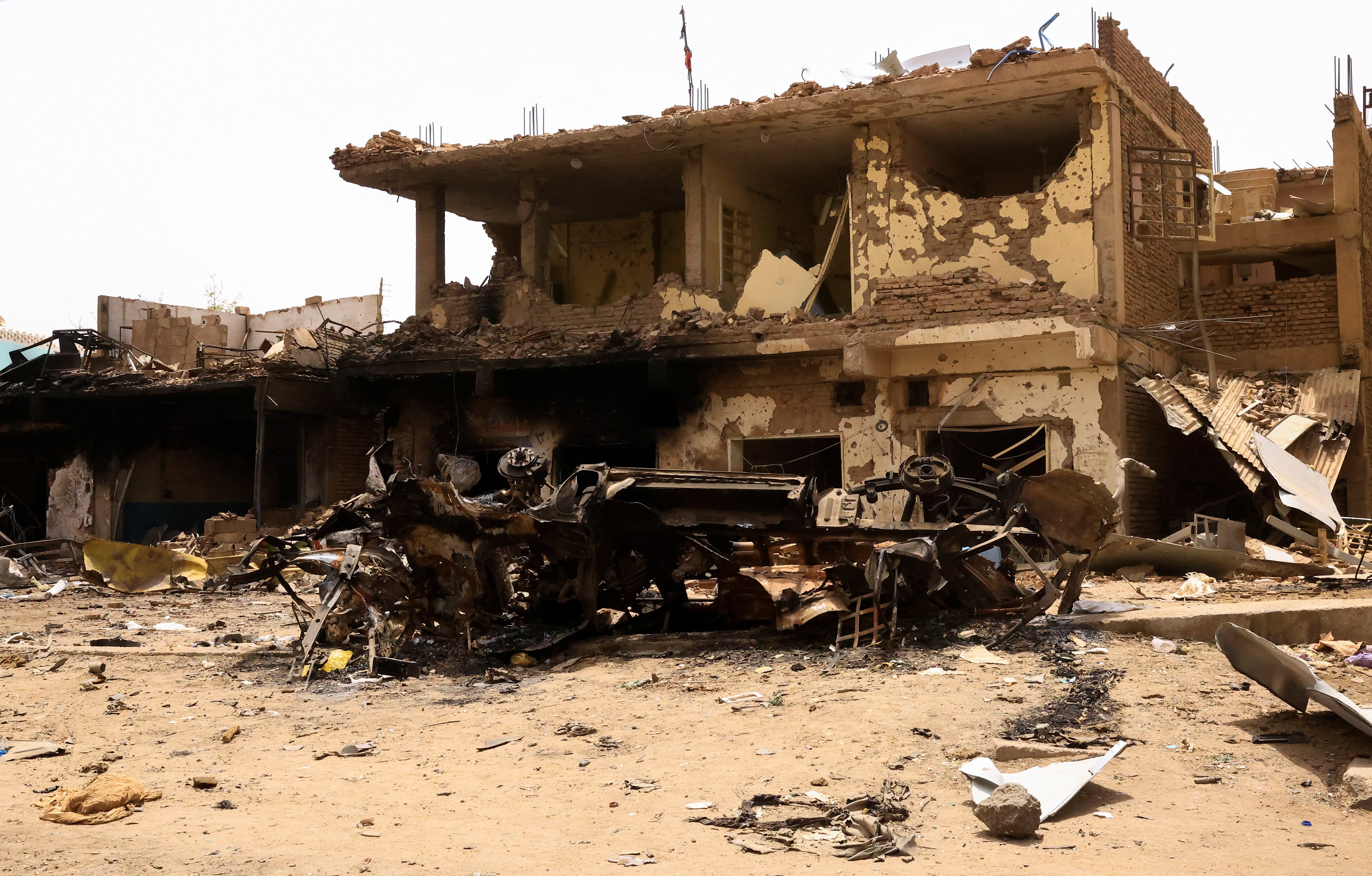
There are at least 60 Sudanese NHS doctors still stranded in Sudan, according to Dr Reem Taha, a member of the Sudanese Junior Doctors Association UK.
Abdulrahman, who is not disclosing his surname for safety reasons, has been denied a seat on a British evacuation plane, leaving him stranded in the war zone and prompting fears that the dozens of NHS doctors stuck in the country could face the same plight.
Like at least eight NHS doctors trapped in the country, he has a biometric residence permit (BRP), which is a visa that is proof of a person’s right to study or work in the UK.
However, Tarig, an NHS doctor with a BRP who is also not disclosing his full name for safety reasons, has now been allowed onto a British evacuation plane, after initially being rejected like Abdulrahman.
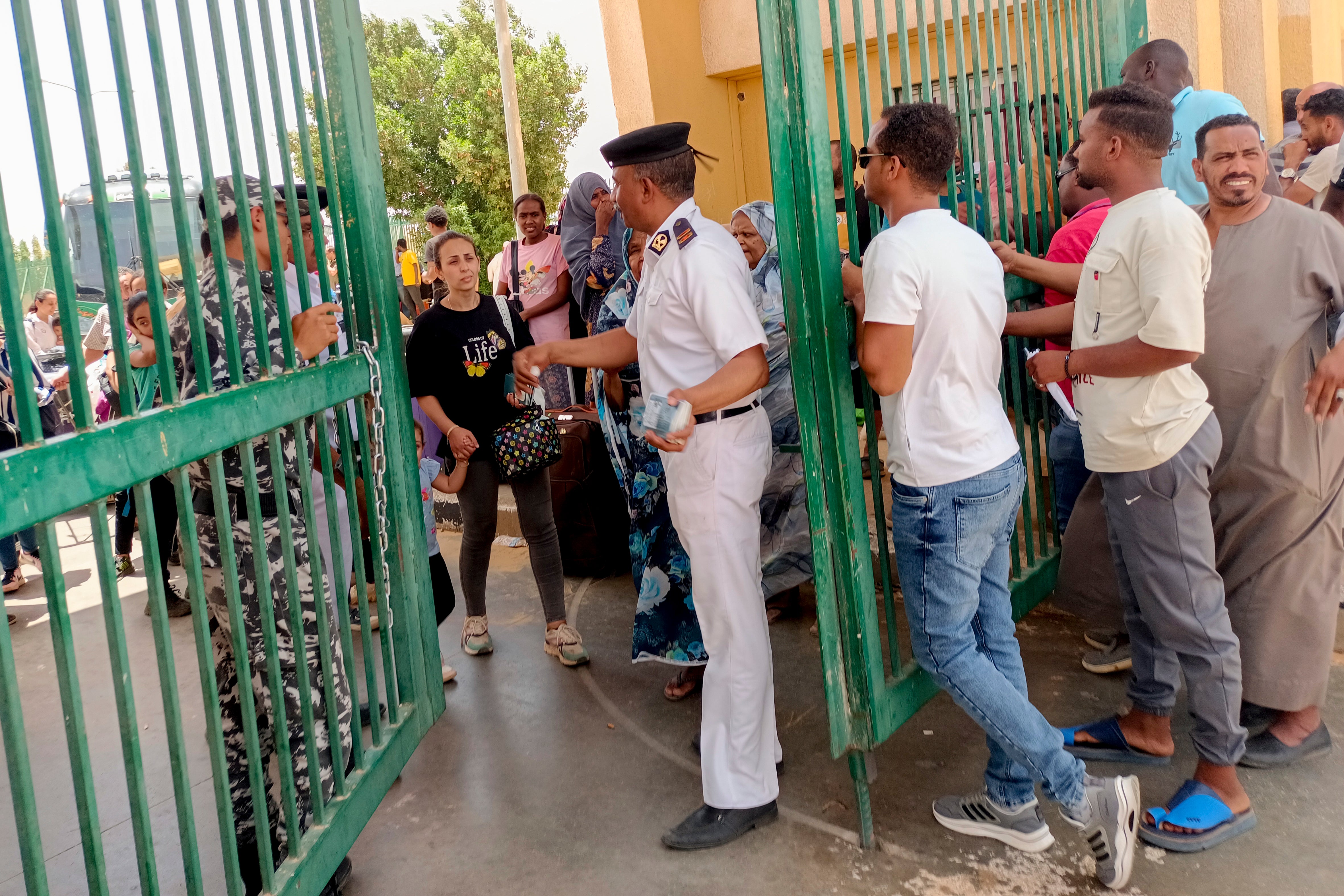
Amid confusion over the British government’s plans to evacuate citizens, the Foreign Office said on Thursday it was keeping the situation “under review”, with No 10 adding on the same day that there was “an element of discretion” for those working on the ground in Sudan.
But it confirmed to The Independent on Friday morning that only British nationals and their immediate family members with existing eligibility to enter the UK were being evacuated.
This does not include NHS doctors who are non-British and visa holders, the British Medical Association (BMA) said.
On Thursday the BMA wrote to the Foreign Office calling for the safe return of all NHS doctors, telling officials they must not be left behind.
A UK government spokesperson said: “The evacuation response from Khartoum is open to all British nationals and their eligible dependents who wish to leave Sudan.
“Those who have existing entry clearance for the UK but are not the dependent of a British passport holder can still come to the UK via other points of exit, such as crossing the border into Egypt.”
Join our commenting forum
Join thought-provoking conversations, follow other Independent readers and see their replies
Comments
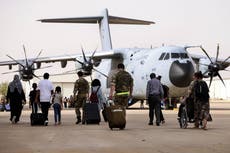

Bookmark popover
Removed from bookmarks